Constitution
Gun control – fact and fiction, part 2
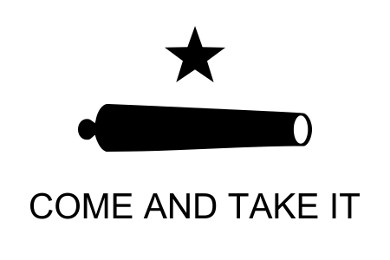
Gun control has always been about people control. The Framers of the Constitution understood that. Too few judges and “experts” understand it today.
The history of gun control in America
In the South before and after the War Between the States
Gun control has a longer history in America than one might suppose. Kentucky, in 1813, passed the first law against “carrying a concealed weapon.” In 1822 the Kentucky Court of Appeals threw that law out. They said it broke their own State constitution. That constitution had its own Second Amendment-type article.
In 1837 – eleven years after Thomas Jefferson and John Adams died – Georgia passed its own gun control law. Ben Garrett, writing at About.com, tells us what that law said. It banned all pistols, except those that horsemen carried. And it banned the sort of knife one would fight with.
Why did the legislature so act? Garrett found no primary sources to tell us. But perhaps this law grew out of anti-black prejudice. In Georgia, some planters used senior black field hands as foremen, and often armed them. Even if they were slaves, their owners trusted them. But not everyone did. These were the likely voices that got this law passed.
Then in 1846, Hawkins H. Nunn broke this gun control law, suffered arrest, and argued that having a pistol was his right under the federal Constitution. Georgia did not have its own Second Amendment article. So the Georgia Supreme Court applied the Federal Constitution and the Second Amendment to Nunn’s case. They thus nullified and voided that law. (Nunn v. State of Georgia, 1 Kelly 243 (Ga. 1846))
The anti-black prejudice that might have provoked the 1837 gun control law, would surface again after the War Between the States. The Southern States, as soon as the carpetbaggers and scalawags fell from power, wrote “black codes” into their laws. One of them was to forbid them to own or carry guns. Tellingly, the federal government never interfered with that.
Gun control in the twentieth century
In the twentieth century and arguably earlier, the federal government broke with the Constitution. Benjamin Franklin would surely recognize that they sacrificed liberty for safety. They did this to answer two kinds of threat. The threats might have been real enough. (Or were they?) But the answers to those threats now threaten to become the very thing the people wanted them to guard against. They are:
Organized crime
Congress passed the original National Firearms Act of 1934 in answer to the Saint Valentine’s Day Massacre. On February 14, 1929, “soldiers” loyal to “Scarface” Al Capone, disguised as members of the Chicago Police Department, surprised several “soldiers” loyal to his rival, “Bugs” Moran. They burst into their garage and herded everyone inside against the wall. Then another squad of Capone’s men walked in and shot them all in the back. Among other weapons, they used two Thompson sub-machine guns (“Tommy guns”). So the government developed the highly dubious theory that they could single out a class of weapon only a gangster would carry, and ban weapons of that class. The one case challenging that law (US v. Miller) was decided by default – because Jack Miller and his lawyer couldn’t afford to travel to Washington, DC to argue their case before the US Supreme Court. (The “correct answers” to this “Second Amendment Quiz” at the Christian Science Monitor deliberately obscure that fact.)
Nor did the government stop there. In 1938 Congress passed the Federal Firearms Act. That is the basis of Federal Firearms Licenses. It was also the first law to forbid a person convicted of a “violent” felony to buy a gun. The problem: this was not the decision of a court. It was an act of a legislature. As such it is an unconstitutional bill of attainder. It also deprives a class of people of some of their liberties without due process of law. As such it breaks Article I, Section 9, Clause 3, and the Fifth Amendment.
Political fanaticism
Merriam and Webster define an assassin as “a murderer, especially one who kills for hire or for fanatical motives.” In 1968, America suffered what might be the first Muslim terrorist attack on American soil. On June 5, 1968, Sirhan Bishara Sirhan walked into the kitchen pantry of the Ambassador Hotel in Los Angeles, CA, drew a pistol, and shot Senator Robert F. Kennedy (D-NY) to death minutes after he had won the California Democratic Primary. This happened one year to the day after the start of the Six-Day War in the Middle East. Did Sirhan, though he had lived in America since he was twelve, rediscover his Muslim identity after that War? Or did someone put him up to it, perhaps over several games of solitaire? We may never know. (CNAV apologizes here to Richard Condon, George Axelrod, and the estate of Frank Sinatra.)
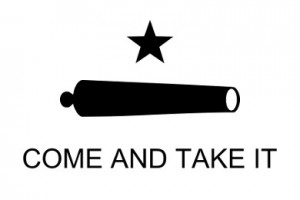
The battle flag of the defenders at Gonzales. This was their answer to Generalissimo Antonio Lopez de Santa Ana, who demanded a return of their cannon.
But we do know one result: the Gun Control Act of 1968. Senator Edward M. Kennedy (D-MA) pushed this through Congress. None dared argue with him after he had lost a brother to someone who arguably was crazy. As in 1934, that was only the beginning. In 1972 the Bureau of Alcohol, Tobacco, and Firearms came to be.
Gun control gained steam for twenty-five years. In 1994 came the Brady Act, first to force local law-enforcement agencies to run background checks on those who wanted to buy handguns in their jurisdictions. James Brady, of course, had taken a bullet from John W. Hinckley III, who had tried to kill President Ronald Reagan in 1981. Brady’s wife Sarah still says that no one, except an LEO or an active-duty service member, should ever have a gun.
I don’t believe gun owners have rights.
And:
We must get rid of all the guns.
The climax was the 1995 “assault weapons” ban. Senator Diane Feinstein (D-CA) wrote that, partly in answer to the murder of George Moscone, who had succeeded her as Mayor of San Francisco, and of Harvey Milk, holder of the “homosexual seat” on that city’s Board of Supervisors. A hate-filled political sore loser committed those crimes.
The tide turns
But in 1997, the tide began to turn against gun control. The Supreme Court (Printz v. US) struck down the part of the Brady Act forcing local LEO’s to check the backgrounds of handgun buyers. The tides shifted back and forth, until in 2010 the Supreme Court ruled (DC v. Heller) that the Second Amendment does recognize that any person, not just a member of an “official militia,” has the right to keep and bear arms.
The US Constitution forbids gun control at any level
In striking down the 1837 gun control law in Georgia, the Nunn court asked this:
Does it follow that because the people refused to delegate to the general government the power to take from them the right to keep and bear arms, that they designed to rest it in the State governments? Is this a right reserved to the States or to themselves? Is it not an inalienable right, which lies at the bottom of every free government? We do not believe that, because the people withheld this arbitrary power of disfranchisement from Congress, they ever intended to confer it on the local legislatures. This right is too dear to be confided to a republican legislature.
That precedent still stands. Notice something else: this came down before the Fourteenth Amendment. That Amendment reads in part:
No State shall make or enforce any law which shall abridge the privileges or immunities of citizens of the United States.
The Georgia Supreme Court did not need this language to tell them that gun control could never be constitutional. In fact it said that no legislature in a republic can ever deny to citizens and lawful residents the right to keep and bear arms.
But that is exactly what putative President Barack Obama, Senator Feinstein, Representative Jerrold Nadler (D-NY), and many others want to do.
[subscribe2]
Terry A. Hurlbut has been a student of politics, philosophy, and science for more than 35 years. He is a graduate of Yale College and has served as a physician-level laboratory administrator in a 250-bed community hospital. He also is a serious student of the Bible, is conversant in its two primary original languages, and has followed the creation-science movement closely since 1993.
-

 Education4 days ago
Education4 days ago‘Grading for Equity’: Promoting Students by Banning Grades of Zero and Leaving No Class Cut-Ups Behind
-
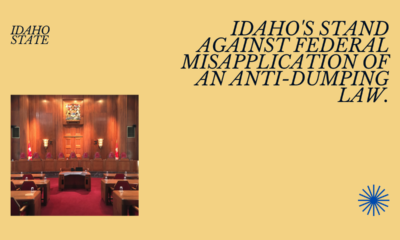
 Family3 days ago
Family3 days agoIdaho defends against abortion mandate
-

 Education1 day ago
Education1 day agoCHAPTER 11: Critical Race Theory: A Species of the Ideological Thought Genus Marxism
Space Is No Longer the Final Frontier—Reality Is [forthcoming release May 2024] -
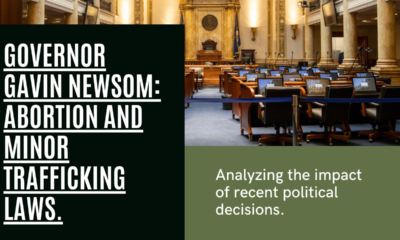
 Civilization5 days ago
Civilization5 days agoNewsom plays silly abortion politics
-
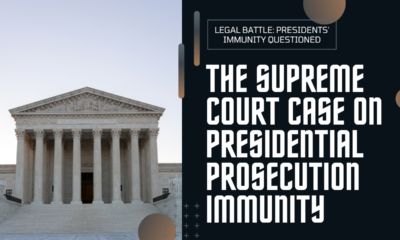
 Constitution2 days ago
Constitution2 days agoPresidential immunity question goes to SCOTUS
-

 Civilization5 days ago
Civilization5 days agoWaste of the Day: China Still Owes Over $1 Trillion to American Bondholders
-
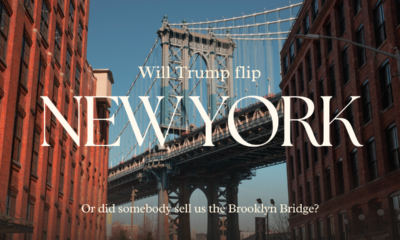
 Civilization18 hours ago
Civilization18 hours agoWill Trump flip New York?
-

 Civilization5 days ago
Civilization5 days agoCurrent Conflicts Demonstrate Need for More and Better Tanks In Eastern Europe



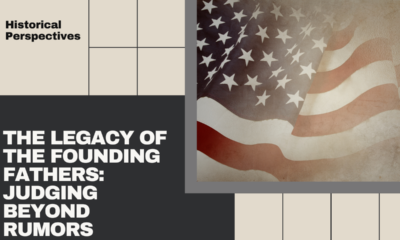

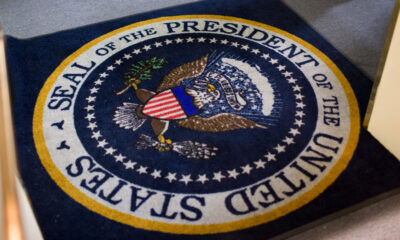



Theresa Brooks liked this on Facebook.
Been saying the same thing for a long time….but the left, saying that “hunting” and “home protection” is the reason for guns is a lie they’d like to make truth. The 2nd Amendment is about defending our liberty from a tyranical government….like the one we have now would like to be.
[…] idea. CNAV showed here that gun rights are one thing that makes us American. (Sadly, we’ve been forgetting that in the last hundred-odd years. It’s time to remember that […]